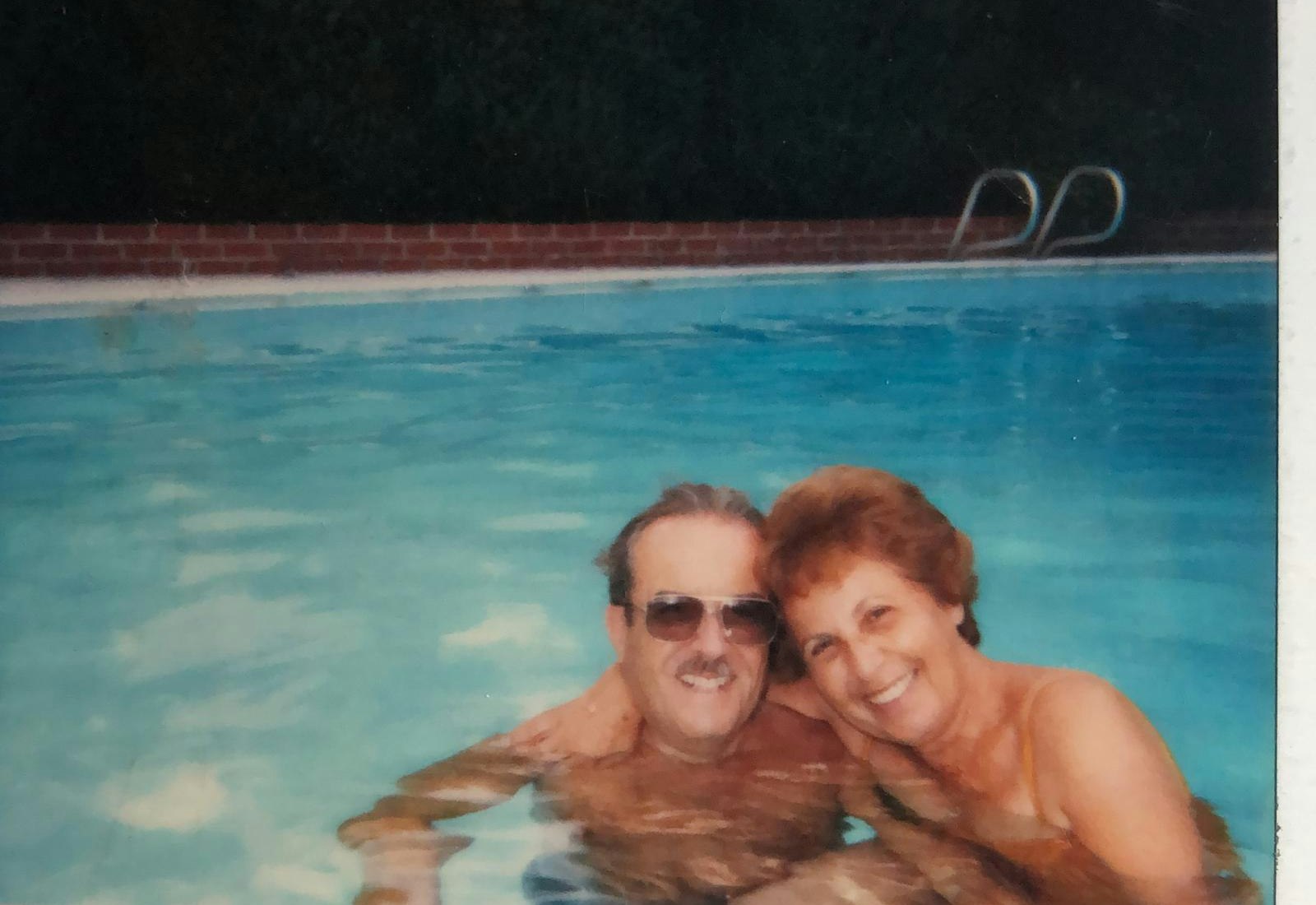Shared by Susie Stark Serenevich


“My parents were the most positive, uplifting, generous, kind, successful people,” Susie Stark Serenevich says. Though, her favorite one liner from her mom Handa reveals a dark past. Her mother was elderly and one day when Susie helped her to a public restroom in Israel, she said “Mom, don’t sit on the toilet, I’ll put paper.” Handa responded: “I was in Auschwitz, I’ll sit on the toilet.”
Handa was born in Sevluš — a village that Czechoslovakia, Hungary, and Ukraine have all claimed — where her father Yitzhak was a beloved doctor who treated people whether they could pay or not. And in the early morning, her brother would avoid his waiting room because “the town hookers would come [in] and he was worried they might recognize him,” Susie laughs.
Handa’s mother Dvorah spoke seven languages and between the two world wars, she lived in the United States where she worked for Henry Ford. In a Shoah Foundation recording, Handa describes a good life before the war, attending school with her girlfriends and living with her family.
In the early 1940s, their lives changed with a knock on the door. Soldiers told them they had two hours to pack. “The part of this story that I remember the most,” Susie explains, is the fact that “My mother wasn’t afraid. She was with her parents and her friends. For her it was an adventure.” They were packed into a cattle car, but they opened the doors and saw rolling forests and villages go by.
When they stopped by the border between Poland and Hungry, Yitzhak heard a local doctor was looking for help, but he said he couldn’t stay — someone needed to look after the group he was with. Just as the transport was about to leave, a policeman arrived and said “Where’s that doctor? We need him.” The family stayed in the town, living with a righteous gentile. Later, they learned that the transport was sent to Kamenets-Podolsk, the site of the first mass murder of Jews by the Nazis.
After a year, her family returned to their village, but they were deported again and taken to Auschwitz. Susie says her mother and grandmother could smell the gas chambers. Dvorah was first sent to that line, but when there was some commotion, she was able to grab on to Handa.
“They stayed together, but they weren’t liberated from Auschwitz — this is where the Henry Ford story comes in,” Susie says. When a German industrialist arrived looking for laborers for a missile factory, Dvorah spoke up and told the man about her experience. She and Handa were taken to the factory where they worked and lived until they were liberated by Soviet forces.
When the family reunited, they left together for France where Dvorah and Yitzchak ran an orphanage for child survivors. While Handa was there, she briefly met a man nicknamed “Babush” — but she didn’t think much of it, Susie says. His family immigrated to Chile and hers to New York.
One day, Handa received a letter from him asking how she was doing. She wrote back: “I’m fine, but why are you writing to me?” Susie explains. He asked if she would marry him. Her mother didn’t like her boyfriend at the time and when Handa shared the news of the letter, her mother said “you’re engaged.”
“My mom and dad wrote letters to each other and right before Passover they put my mom on the boat by herself” to Chile to get married, Susie shares. Despite barely knowing one another before getting engaged, “they had an amazing amazing amazing marriage — they were so in love,” she adds.
They later settled in Los Angeles where Susie and her siblings Rosie and Allan grew up and were part of a large community of survivors. “My father was the kind of person that people followed to LA — he would set them up in business,” Susie says. Her mom was a good cook, and Susie remembers her tall nut tortes, roast chicken, sweet egg noodles with ground walnuts, and even a soup she made from flour and water, which Susie says is “a meal for someone who has to make a meal of nothing.”
One recipe she remembers fondly is what the family calls “bubbie chicken,” or fried chicken wings. On Friday afternoons during the summer, Handa would make it for Susie’s kids and their cousins. “After they got out of the pool, before showers, they would have their bubbie chicken,” she says. It would help tide them over until Shabbat dinner.
It’s been years since those summer afternoons and both of her parents have passed away, but Susie remains committed to sharing their story. “Their history and their life experiences are part of the history of the Jewish people,” she says.
